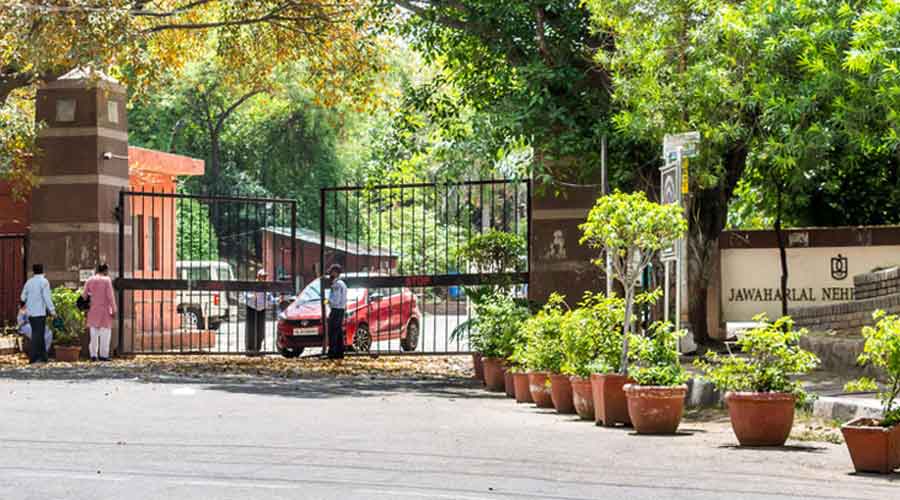Delhi High Court has said Jawaharlal Nehru University vice-chancellor M. Jagadesh Kumar’s appointment of chairpersons of nine centres of learning was “prima facie without authority”, once again ruling against an administrative decision of the official.
A two-judge bench of the court, however, has allowed the nine chairpersons to continue till a single-judge bench disposes of the challenge to the appointments. The two-judge bench of Justices Rajiv Shakdher and Talwant Singh has restrained the chairpersons from taking any “major decisions” in the interim.
VC Kumar had himself appointed these chairpersons and then sought the approval of the Executive Council. According to JNU rules, only the Executive Council can make such appointments.
Statute 18(2)(c)(I) of JNU says: “Each centre/ department shall have a Chairperson who shall be appointed by the Executive Council from amongst the Professors/Senior Fellows for a period of two years.”
The petitioner, Prof. Atul Sood, had said that Kumar had first made the appointments and then tried to get them ratified at an Executive Council meeting on September 2.
When the single bench of the high court refused to issue a stay order on the appointments, Sood moved the higher bench. The two-judge bench has asked the single bench to expedite the hearing on the writ petition, saying it was “cognisant of the fact that the centres/special centres need chairpersons for effective functioning”.
The two-judge bench said in its order dated October 26: “We are prima facie of the view that respondent No. 2 (the VC) is not vested with the power to appoint chairpersons of centres/ special centres. The statute confers the power of appointment on the Executive Council. Thus, clearly the appointment of chairpersons of centres/ special centres by respondent No. 2 is, as is evident at this stage, prima facie, without authority.”
“Pending decision in the writ petition, the nine chairpersons, who have been appointed… will not take any major decisions, including functions relating to convening of selection committees and/ or carrying out selection(s) concerning the centres/ special centres,” it added.
The court clarified that its views were only prima facie and the single judge would decide the writ petition on merits after hearing both sides.
Lawyer Abhik Chimni, who appeared on behalf of Sood, had argued that the power of appointing chairperson of the centres and special centres had been conferred on the Executive Council only.
Monika Arora, the JNU counsel, had said the VC had exercised his emergency powers under Statute 4(5) for the appointments.
However, the VC-approved agenda of the September 2 Executive Council meeting had mentioned that the appointments had been made under the provisions of Statute 18(2)(c)(I).
The JNU Teachers Association (JNUTA) on Wednesday criticised the Union education ministry for allowing Kumar to continue as VC despite several adverse court orders in recent months. Kumar, whose term ended in January, has been on extension since.
In November 2020, Delhi High Court had set aside JNU’s decision to put on hold pension payment of a professor because he took part in a strike. Despite the court order, several retired faculty have been denied their retirement benefits because of the “malafide directions” issued by VC Kumar, the JNUTA said in a statement. The JNUTA has written to the education ministry seeking the removal of Kumar.
“The silence maintained by the ministry of education with respect to the illegalities committed by him too needs to be questioned. By not taking action against this errant vice-chancellor, they have virtually allowed him to have a free reign at the cost of the university,” the statement said.











